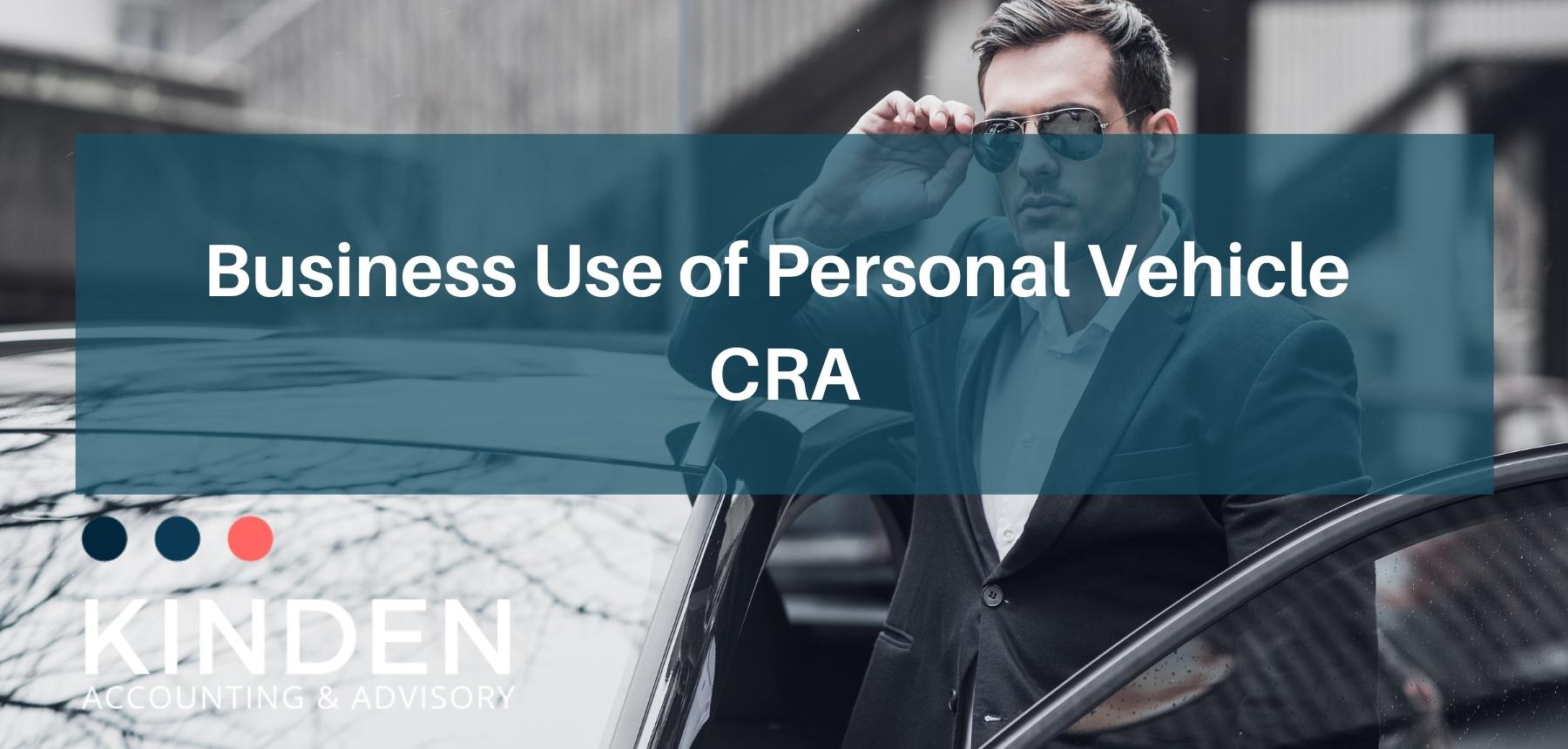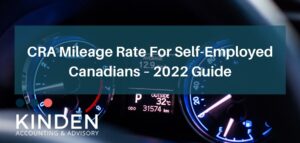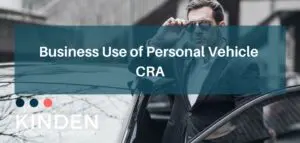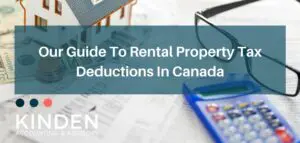
Traveling expenses can account for a considerable portion of your business expenses. The cost of fuel, vehicle maintenance, depreciation, and more can all take away from your profit margins. But what if we told you that you could deduct these expenses against your income tax? Yes, you read that right. What you consider a business expense could well be a source of tax relief for you.
While these tax deductions are limited only to the portion of vehicle expenses that relate to business income, they can still be a significant relief for business owners.
Amongst many things deductions can include the full amount of parking fees that are related to your business, repair expenses, operating expenses, oil costs, and even the supplementary business insurance for your motor vehicle or passenger vehicle.
So, are you ready to learn more about the business use of personal vehicles and how it impacts CRA? Great! because today we’ll be guiding you on how you can go about making smart tax claims that can benefit your business’s bottom line and even your own personal livelihood.
HOW TO PROPERLY CALCULATE BUSINESS-RELATED MOTOR VEHICLE EXPENSES
First and foremost, in order to support any deductions from your tax return, keep a record of your driving distances and receipts for fuel. You’ll really need to sit and deduce just how much you drive to earn an income and how much you drive otherwise. It’s a delicate balance and you need to be careful.
For example, if you have a farming business, then your vehicle use for business includes trips to pick up parts and supplies or deliver produce. However, if your farm is not your home, then the distance from your home to the farm would not be considered business travel.
It’s now number-crunching time. In order to figure out how much you can claim against deductions for your business one must divide the business kilometers by the number of total kilometers driven and multiply it with the total expenses incurred against the vehicle for the year.
So, let’s say your total driven kilometers are 10,000 out of which 7500 kilometers were for business purposes, and your vehicular expenses for the year are $5000. In this case, the deduction amount would then equate to (7500/10000 X 5000) = $3750.
In order to calculate and claim deductions, one must fill out Form T2125, Form T2042, and Form T2121. Moreover, if you have an employer-provided vehicle, then you’ll need to provide further specific details for which you should consult with your employer’s HR and finance department.
HOW TO CLAIM A DEDUCTION IF YOU ARE SELF-EMPLOYED
If you’re self-employed or are a corporation, then you might be eligible to deduct expenses for vehicle usage. The T2125 form has a provision on line 9281, whereby you can claim against various allowable motor vehicle expenses including license and registration fees, fuel and oil costs, mileage expenses, lease expenses, insurance, interest on money borrowed to buy the vehicle, maintenance, and repairs, and leasing costs.
However, the motor vehicle for business purposes can’t be considered as a part of the deduction, because that is an expense that can only be written off over time through Capital Cost Allowance. Moreover, as with the case of individual vehicles, you’ll need to keep track of your trips throughout the year, and also keep a record of receipts for vehicle-related expenses.
VEHICLES COVERED UNDER THE DEDUCTION
The deduction amount also depends on the type of vehicle you drive or use for your business. When it comes to income tax purposes, four types of vehicles are considered. Motor vehicles, passenger vehicles, zero-emission vehicles, and zero-emission passenger vehicles; each having its own rate of deduction.
A basic definition of a “motor vehicle” is an automotive vehicle designed or adapted for use on highways and streets. A trolley bus or any other type of vehicle which has been repurposed to operate on rails would not be covered under the deduction.
KEEPING A DRIVE LOGBOOK AND SOME COMMON MISTAKES TO AVOID
The best way to prove your use of a vehicle for business travel is to maintain an accurate logbook. This must be done diligently and in detail, showing each business trip and specifying the date, destination, reason for the trip, and the distance covered. You’ll also record the odometer reading at the start and end of each fiscal period to help further corroborate your logbook records. Also, make sure to do these following fiscal periods.
One common mistake made by people is that while they keep a logbook, they’re not very meticulous or don’t include a lot of detail. Be as thorough as possible and include any further details you think necessary. There have even been some cases where people take pictures of their odometer before and after every single trip. While it may seem excessive to some, one can’t deny that, if properly done, the method is quite effective.
Without a properly detailed logbook, there’s a very big chance that the Canadian Revenue Agency can deny your claim. Another place where people fall short is in providing evidence to support expenses. You’ll need to submit proper evidence for the expenses that you’re including to calculate your deduction amount. So be ready to include original receipts for all vehicle expenses like fuel, maintenance, repairs, and so on. Credit card statements are not accepted as they do not provide enough detail for the purposes of the Canadian Revenue Agency.
If you’d like to simplify recordkeeping as a company, then where you have an employee using their personal vehicle for business reasons, you could pay a reasonable per kilometer allowance. Your corporation would not need receipts or invoices to prove the reimbursement, as long as a sufficiently detailed logbook of business travel is kept. Regardless of what method of accounting you choose, don’t let insufficient record-keeping keep you from claiming your deductions.
CONSULT WITH AN ONLINE TAX CONSULTANT TODAY!
Sometimes navigating tax matters can be complicated. No matter how many articles you read or how much research you do if you are not an accountant they are many things that are likely going to go over your head.
This is why finding an online tax consultant can be so beneficial. Yes, it can be an added cost to your business but the savings in time and money make it worth every penny.
If you’re in need of expert advice from experienced professional income tax advisors, then get in touch with Kinden CPA. Based out of Nova Scotia, Halifax, Kinden CPA specializes in online accounting services and has helped hundreds if not thousands of businesses become more financially stable by providing expert advice and tax solutions that help your business grow and succeed.



